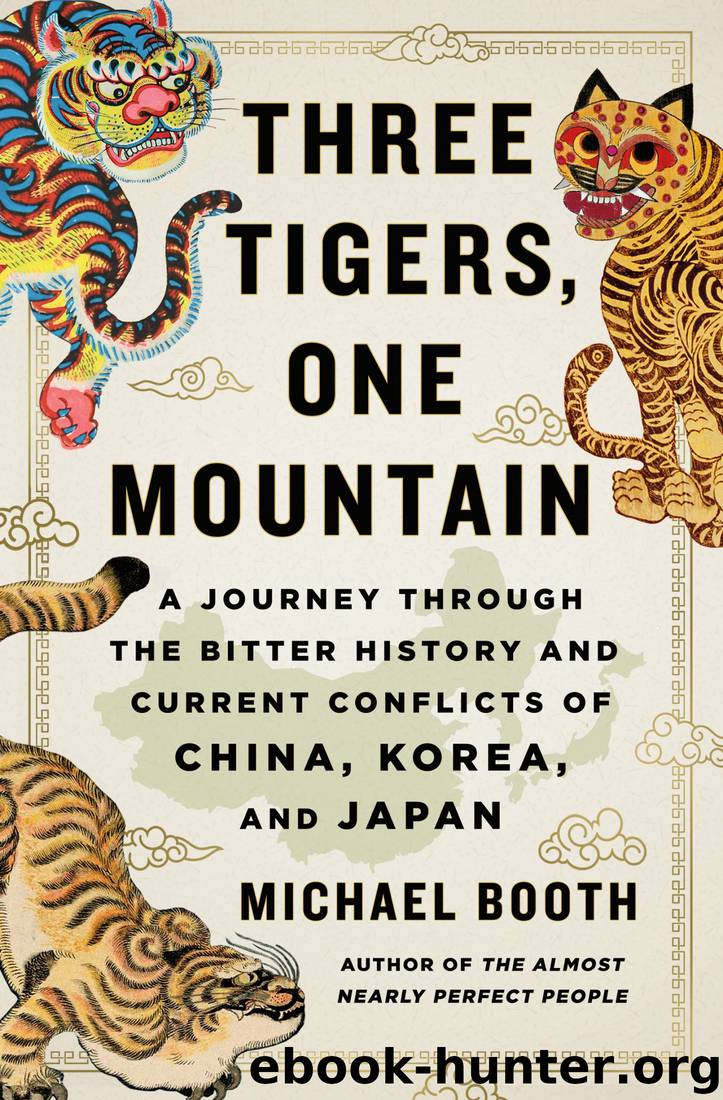Three Tigers, One Mountain by Michael Booth

Author:Michael Booth
Language: eng
Format: epub
Publisher: Random House
Published: 2020-01-16T00:00:00+00:00
It also included a promise to “face squarely” the historical fact and to teach about the occupation in schools, and the surviving comfort women were each sent a signed letter from the then prime minister of Japan, Hashimoto Ryutaro, which read: “As Prime Minister of Japan, I thus extend anew my most sincere apologies and remorse to all the women who underwent immeasurable and painful experiences and suffered incurable physical and psychological wounds as comfort women.”
In 1995 the Japanese government set up the Asia Women’s Fund to compensate the comfort women, but there was a catch, a legal technicality that has provoked at least some of the resentment of the campaigners to this day. The compensation offered by the Japanese came from donations from private people, not the Japanese state. Had the money been official, it might have negated the various postwar treaties between Japan and the countries it had invaded and risked opening the floodgates to claims from anyone adversely affected by the actions of the Japanese military up until 1945. To move the issue forward quickly, the Japanese government accepted full moral responsibility but insisted that the right to claim material compensation had been dealt with by previous treaties. In fact, government money was used for the administration of the new fund, but most of the cash came from voluntary donations by Japanese people. Within a couple of months, 400 million yen ($3.5 million) had been raised, but many of the comfort women refused to accept any payments from the fund. They still felt the Japanese government needed to compensate them further under the terms of international law.
Over the years many more comfort women have taken their cases to Japanese courts, usually represented by Japanese legal teams working for free. In each case, the courts have acknowledged the veracity of the women’s claims but again concluded (often regretfully) either that the issue of state compensation had been settled by the previous treaties with China and Korea in 1952, 1965, and 1972, in which these countries renounced their claims for war reparations from Japan, or that a statute of limitations applied. The comfort women campaigners argued in return that those treaties only renounced the right of the Chinese and Korean states to sue Japan, not the right of individuals. The United Nations weighed in, pointing out that statutes of limitations do not apply to “gross violations of human rights.”
Nevertheless, there have been numerous further statements of remorse and regret from Japanese prime ministers over the years, while Emperor Akihito, son of Hirohito, in whose name and under whose command the war was waged, has also done as much as he can within his limited sphere of expression to offer remorse for Japan’s actions, leading one observer, Jeff Kingston, director of Asian studies at Temple University, Japan, to describe him recently as “Japan’s leading emissary of reconciliation.”
Often, though, these official apologies and expressions of remorse have been undermined; not all Japanese politicians have felt inclined to maintain a contrite tone, particularly in recent years.
Download
This site does not store any files on its server. We only index and link to content provided by other sites. Please contact the content providers to delete copyright contents if any and email us, we'll remove relevant links or contents immediately.
| Arms Control | Diplomacy |
| Security | Trades & Tariffs |
| Treaties | African |
| Asian | Australian & Oceanian |
| Canadian | Caribbean & Latin American |
| European | Middle Eastern |
| Russian & Former Soviet Union |
The Secret History by Donna Tartt(16627)
The Social Justice Warrior Handbook by Lisa De Pasquale(11489)
Thirteen Reasons Why by Jay Asher(7788)
This Is How You Lose Her by Junot Diaz(5774)
Weapons of Math Destruction by Cathy O'Neil(5037)
Zero to One by Peter Thiel(4824)
The Myth of the Strong Leader by Archie Brown(4789)
Promise Me, Dad by Joe Biden(4449)
Beartown by Fredrik Backman(4419)
Stone's Rules by Roger Stone(4416)
How Democracies Die by Steven Levitsky & Daniel Ziblatt(4399)
The Fire Next Time by James Baldwin(4343)
100 Deadly Skills by Clint Emerson(4079)
A Higher Loyalty: Truth, Lies, and Leadership by James Comey(4033)
Rise and Kill First by Ronen Bergman(4012)
The David Icke Guide to the Global Conspiracy (and how to end it) by David Icke(3883)
The Farm by Tom Rob Smith(3872)
Secrecy World by Jake Bernstein(3783)
The Doomsday Machine by Daniel Ellsberg(3731)
